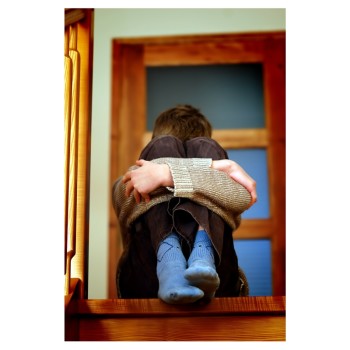Parenting Through Disappointment, Loss, and Grief
by Guest Author Carole Downing, Author of Singing Beyond Sorrow-A Year of Grief, Gratitude and Grace
Disappointment happens.
Turns on a swing aren’t fair when it’s time to leave.
There are an odd number of gummy bears impossible to split equally.
A friend chooses someone else to play with for a day. Loss happens.A cherished toy slips between the cracks of the boardwalk and into the ocean below. A move to a new school shifts old patterns of friendship. A child doesn’t make the sports team during tryouts.Grief happens.A loved one dies. A divorce is finalized. A parent loses a job.At varying degrees of intensity and at different times, grief or loss inevitably touches the lives of our children. No matter the specifics of the event, grief catches our children just as surely and swiftly as it does us as parents.Parenting in times of grief, loss or transition can be difficult, particularly if we have our own cascade of emotions related to the situation at hand. It’s painful enough to experience loss or grief without having to also navigate these big feelings with our children.So how can we support children in bearing the inevitable losses in life? Intuitively, we want to make it better. There may be an inner voice that tells us if we can somehow fix the disappointment or pain that our child is feeling then we can make it all go away. We try to search for something to soothe, replace or distract from the loss at hand. But when it all comes down to it and the edges of grief and disappointment cloud the sunny day disposition of our child, I believe there’s no easier way out than through.I’ve found in my own parenting of a grieving child and with my clients that no matter how hard it is to hold back, the rewards of letting children experience challenging emotions creates a deeper connection and stronger emotional intelligence that will serve them in meeting many of the losses in life.Some tips for guiding children in times of loss:1. Provide presence.Instead of trying to fix or limit the expression of their feelings, provide a calm presence. Let them know you are there with them and it’s okay to be feeling what they are feeling. If you as a parent are also feeling upset, it can be helpful to take a moment to collect and care for yourself before bringing presence to your child.2. Connect with Empathy.Reflect with empathy what you think they may be feeling. Empathy is the process of stepping in their shoes and imagining what the child is experiencing:“You seem to be disappointed that you didn’t get a turn,”“You feel all alone now that your friend moved away.”“You’re angry and it doesn’t seem fair.”“You’re sad that Daddy isn’t here to read to you.”In the process of reflecting empathy, we may not get the emotion right the first time but as we stay present with them and continue to reflect what they might be feeling, they often will begin to relax and recognize their own emotions. Receiving empathy and knowing they are understood can be the magic salve to soothe your child’s system and create space for connection.3. Hold a container for big feelings. If your child needs to move the energy of emotion, you can provide them safe space and options for letting out the intensity of what they are feeling. After receiving empathy and feeling connected, your child may be open to some ideas for moving their body, doing some drawing, squeezing tightly to a chair or choosing any other safe avenue to release the emotion.4. Engage and ExploreOnce your child feels heard and has had a chance to express their feelings, they will often naturally move back into play. If they seem to need some help transitioning, you can offer some options for reconnecting to something they enjoy. A favorite book or game can be a bridge back to their regular routine.Parenting in times that are challenging for our children can be a daunting task, whether helping them through the smaller day-to-day disappointments or navigating the grief of a larger loss.It can be a stretch to meet big emotions and our impulse to protect them from big feelings is natural. And yet by shifting the focus to comfort and connection we give them the gift of knowing they can learn to manage difficult times. By acknowledging loss and guiding them through, we can help them find a place of resilience that will benefit them for a lifetime.
Educating yourself is your best defense!Bundle #2 "He's Growing Up - Quickly" includes the interview, "How to Help Him Cope with Grief, Loss, and Disappointment"
for podcast interview bundles with renowned experts on this topic and more:
============================
*Join the Boys Alive! community below for updates and more.*


